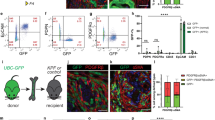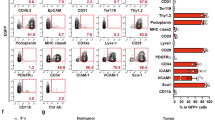Abstract
Scirrhous gastric cancer cells proliferate rapidly with fibrosis, when the cancer cells invade into the submucosa of the stomach. To investigate the mechanisms responsible for the rapid proliferation, the growth interaction between gastric cancer cells and fibroblasts was examined. Human gastric cancer cell lines established from scirrhous carcinoma or well-differentiated adenocarcinoma were used. Human fibroblast cell lines were obtained from various organs. The growth interaction between gastric cancer cells and fibroblasts was examined by calculating the number of cancer cells or by measuring [3H]thymidine incorporation of cancer cells. Gastric fibroblasts specifically stimulated the growth of scirrhous gastric cancer cells, but not that of well-differentiated adenocarcinoma cells. The growth factor(s) produced from gastric fibroblasts were then partially purified and characterised. The growth-promoting factor(s) had apparent molecular weights of 10000 dalton and was sensitive both to heat and proteinase treatment. No inhibition for the factor(s) was achieved with defined anti-growth factor antibodies. In this study, differential responses of scirrhous and well-differentiated gastric cancer cells to orthotopic fibroblasts were shown. Rapid proliferation of scirrhous gastric carcinoma should be partly controlled by orthotopic fibroblasts. The growth factor(s) from gastric fibroblasts, which was distinct from various defined growth factors such as epidermal growth factor (EGF), basic fibroblast growth factor (b-FGF), transforming growth factor-alpha (TGF-alpha), keratinocyte growth factor (KGF), vascular endothelial growth factor (VEGF), insulin-like growth factor I (IGF-I), hepatocyte growth factor (HGF), platelet-derived growth factor (PDGF) and transforming growth factor beta 1 (TGF-beta 1) may play an important role in the progression of scirrhous gastric cancer cells.
This is a preview of subscription content, access via your institution
Access options
Subscribe to this journal
Receive 24 print issues and online access
$259.00 per year
only $10.79 per issue
Buy this article
- Purchase on Springer Link
- Instant access to full article PDF
Prices may be subject to local taxes which are calculated during checkout
Similar content being viewed by others
Author information
Authors and Affiliations
Rights and permissions
About this article
Cite this article
Yashiro, M., Chung, YS., Kubo, T. et al. Differential responses of scirrhous and well-differentiated gastric cancer cells to orthotopic fibroblasts. Br J Cancer 74, 1096–1103 (1996). https://doi.org/10.1038/bjc.1996.496
Issue Date:
DOI: https://doi.org/10.1038/bjc.1996.496
This article is cited by
-
Expression of Forkhead box P3 in tumour cells causes immunoregulatory function of signet ring cell carcinoma of the stomach
British Journal of Cancer (2012)
-
Phosphorylated Smad2 in Advanced Stage Gastric Carcinoma
BMC Cancer (2010)
-
Inhibitory effect of a TGFβ receptor type-I inhibitor, Ki26894, on invasiveness of scirrhous gastric cancer cells
British Journal of Cancer (2010)
-
Cancer–Stromal Interactions in Scirrhous Gastric Carcinoma
Cancer Microenvironment (2010)
-
Detection of desmoplastic reaction in biopsy specimens is useful for predicting the depth of invasion of early colorectal cancer: a Japanese collaborative study
Journal of Gastroenterology (2010)



